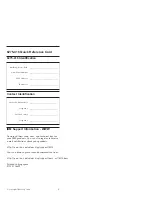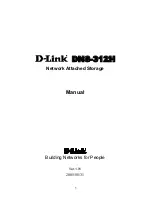
Quantum DXi-Series Command Line Interface (CLI) Guide
6-67081-05 Rev B
April 2012
54
Scheduler CLI Commands
Note:
If changing recurrence information, all necessary fields must be
specified regardless of whether they change or not. For instance, if
the event was weekly on the 1st thu and you need to change it to
the 2nd Fri, then
--interval
,
--until
, and
--count
, must be specified.
CLI Command Options:
•
--change:
Changes specific properties of a scheduled event given the ID.
•
--id:
The ID (found with
--list events
) of the event to change.
•
--desc:
Description for the event. Spaces are allowed, but quotes for the
<event name> are required.
•
--throttle:
Indicates this is a scheduled throttle event and to set the
threshold at <bandwidth>. Bandwidth must be between 256 KB/s and
1000 MB/s to indicate the amount of bandwidth to throttle. For example, if
500 KB/s is desired, enter
--throttle 500K
. If 500 MB/s is desired, enter
--throttle 500M
.
•
--service:
Specify which service to throttle.
•
--start:
Start date and time.
Note:
Date and time can be entered in any order, but if spaces are used to
separate the time and date, then quotes must be used. This date/
time will be used to specify when the event is to occur. In the case
of a recurring event, portions of this date/time will be used for
recurrence. For instance, a yearly recurrence will recur on the same
day and time each year.
•
--end:
End date and time. Note: date and time can be entered in any order,
but if spaces are used to separate the time and date, then quotes must be
used. This date/time will be used to tell when an event will end.
If
--end
is not specified, then an open ended event will be generated.
If
--end
is specified followed by 0, the end declaration will be removed,
making this an open ended event. This type of an event is used for an
occurrence that will never end or for events like replication or garbage
collection where they will end when they have completed their job.
•
--none:
Remove any recurrence information on the specified event forcing it
to be a one time event.
•
--daily:
Recur daily starting at the time obtained from the
--start
specification.
•
--weekly:
Recur weekly on specified days (comma separated for multiple
days) starting at the time obtained from the
--start
specification.
•
--monthly:
Recur monthly on the day and time obtained from the
--start
specification.
•
--monthday:
Recur monthly on a specific weekday within the month
starting at the time obtained from the
--start
specification. ex: 2mon : recur
on the second Monday within the month.
•
--yearly:
Recur yearly on the month, day, and time obtained from the
--start
specification.
















































